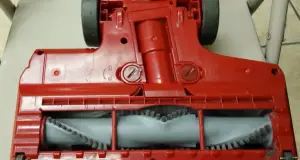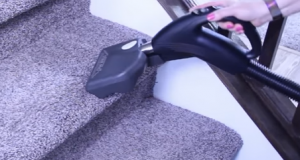Can a vacuum leak cause a misfire? Definitely, sometimes it can. A leak in the vacuum will reduce the air-fuel ratio of the engine and cause problems with the performance of the engine. Such as misfire, decrease energy and acceleration, decrease fuel efficiency. Sometimes it can cause such serious problems that the whole engine can come to a standstill.
In this article, we will tell you what the symptoms of a vacuum leak are and what causes it. So keep reading the following part of the article to get a detailed idea about the causes of vacuum leaks.
Can Vacuum Leak Cause Misfire?
Typically, a bad intake manifold gasket affects the air-fuel ratio. Which causes the engine to start behaving abnormally. To operate the engine properly, its air volume needs to be kept under control. But the sad thing is that sometimes air leaks originate in the engine which is known as a vacuum leak. This allows excess air to enter the system. Therefore, the ratio of air and fuel also drops and creates a lean fuel scene.
Lean fuel can lead to misfire since it is rough idle. Most of the time this problem occurs around the carburetor, throttle body gasket, intake manifold gasket, or vacuum fitting. Some issues cause vacuum leaks. Such as stuck EGR valves or faulty PCV valves that cause similar problems.
If you own a car, you need to be aware that a vacuum leak can cause rough idle problems in the engine. Above all, whenever you find the source of a vacuum leak in the engine, quickly get help from a mechanic and fix it.
How Does a Vacuum Leak Cause Misfire?
It is normal to have a vacuum leak engine. But many do not know why this happens. One of the most common causes of this is a cracked vacuum hose or a leaking intake manifold gasket. This may be a leak from the throttle body gasket.
Moreover, a vacuum leak affects a cylinder by allowing excess air to enter. Excess air dilutes the ratio of fuel to air when it enters through a vacuum leak. As a result, the control in the engine became abnormal.
What are the Symptoms of a Vacuum Leak in the Engine?
Vacuum leaks are currently happening in the engine every day. Why it happens is certainly not unknown to you. Naturally, the use of mechanical things will cause damage in different ways. But it is unusual if you do not take care of them regularly. Your negligence can lead to misfires in car engines. If you notice any of the following symptoms, you will understand that there is a problem in your vacuum.
Higher Idle RPM than Usual
This is the most common symptom of a vacuum leak. In this case, a check engine light will appear on your car’s dashboard. You may even notice symptoms such as high roughness or slow acceleration and misfire. One thing is that the engine is most sensitive when the car is idle. So it is not surprising that high roughness will cause a strong vacuum leak. The main reason this happens is that the throttle body is trying to hold a stable idle so that it can open and close the valve.
When your vacuum leak is excessive or larger than the limit, the throttle body will have trouble controlling it. And this is why the engine has strange idle rough symptoms. You will be surprised that the engine is very sensitive to calculate the correct air-fuel mixture. Therefore a vacuum leak causes various problems in the engine.
In high idle mode, your car’s intake manifold has vacuum pressure because the throttle body prevents the engine from reviving. That’s why in many cases high engine idle RPM is one of the common symptoms of vacuum leakage.
Slow Acceleration
In most cases, a vacuum leak is responsible for slow acceleration. When the vacuum leaks you get the wrong air and fuel ratio in the engine. Because of the uncontrolled air entering and leaving the vacuum leak engine. A vacuum leak creates a greasy mixture and slows the acceleration of the thin mixture. This means that when you increase the speed of the engine, it will feel like it is increasing the speed but it will not actually increase the speed of your car.
If you find yourself in a situation where there is no way to understand that there must have been a leak somewhere in the vacuum.
Check Your Engine Light
An engine control unit controls all its sensors when you drive. These sensors transmit accurate data so you can drive safely. But if any one of these sensors’ faulty data goes to the control unit of the engine, it will turn on the light of the check engine.
A check engine light appears on the dashboard of most current car models when a vacuum leak occurs. Moreover sometimes you can get a problem code in the ECU memory which will indicate to you that there is a lean mixing problem.
Misfire or Backfire in the Engine
This is one of the most devastating symptoms or causes of a vacuum leak. In some cases, the engine does not want to start due to a vacuum leak. When you try to start the engine again and again, the engine often starts to misfire or backfire.
Basically vacuum leaks make air and fuel mixtures so thin that they cannot reach the car’s cylinders properly. And this is exactly the reason why misfire or backfire occurs from the engine.
Creates High Pitch Noise from the Engine
If for some reason the vacuum hose shots break, creating a high pitch sound. Because the engine is sucking air through that leak which is causing this sound. If this is the case then maybe you are lucky because you can easily find out where the leaks are. So listen to the source of the sound and look for it.
Conclusion
A vacuum leak may seem like a small thing but it has a huge impact on engine performance. Sometimes even horrible things like misfire can happen. So the vacuum leak must be free to get the performance of the engine perfect. That’s why it is better to check the reason for the vacuum leak regularly.





